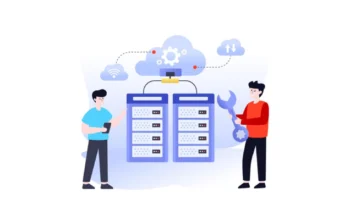In today’s fast-paced business environment, managing human resources efficiently is crucial for any organization striving to grow. As businesses expand, the complexity of handling employee data, payroll, compliance, and performance management increases significantly. This is where core HR software becomes not just a convenience but a necessity. Core HR software streamlines and automates HR processes, allowing businesses to focus on growth, employee engagement, and strategic decision-making. In this article, we’ll explore why core HR software is essential for growing businesses, its key benefits, and how it supports organizational success.
What is Core HR Software?
Core HR software is a centralized platform that manages essential human resource functions, including employee records, payroll, benefits administration, time and attendance, compliance, and reporting. Unlike standalone HR tools that handle only specific HR tasks, core HR software integrates multiple HR processes into a single system, providing a holistic approach to workforce management.
For growing businesses, this integration is vital. Managing HR through spreadsheets or multiple disconnected tools can lead to errors, inefficiencies, and compliance risks. Core HR software ensures that data is accurate, easily accessible, and actionable.

Why Growing Businesses Need Core HR Software?
1. Efficient Employee Data Management
As businesses grow, so does the number of employees and the complexity of HR data. Keeping track of personal details, job roles, salary information, benefits, and performance records manually is time-consuming and prone to errors.
Core HR software centralizes all employee information in a secure digital platform. HR teams can easily update, retrieve, and analyze employee data without digging through multiple spreadsheets or files. This not only saves time but also reduces the risk of human errors, ensuring that all records are accurate and compliant with regulatory standards.
2. Streamlined Payroll and Benefits Administration
Payroll and benefits management are among the most critical HR functions, and mistakes can have serious consequences, from legal penalties to employee dissatisfaction. Core HR software automates payroll calculations, tax deductions, and benefits administration, ensuring timely and accurate payments.
For growing businesses, this automation is invaluable. It reduces the administrative burden on HR staff, minimizes errors, and enhances employee trust. Moreover, many core HR systems integrate with accounting software, providing a seamless financial workflow that supports business growth.
3. Ensuring Compliance and Reducing Legal Risks
Compliance with labor laws, tax regulations, and employment standards is a complex challenge, especially for businesses that are rapidly expanding or operating across multiple regions. Non-compliance can lead to hefty fines, legal disputes, and reputational damage.
Core HR software helps businesses maintain compliance by keeping track of employment contracts, leave policies, tax regulations, and mandatory reporting requirements. Automated alerts and reminders ensure that deadlines are met and that HR policies are consistently enforced. By mitigating compliance risks, growing businesses can focus on strategic objectives rather than firefighting regulatory issues.
4. Enhanced Employee Experience
Employee satisfaction and engagement are critical for retention, productivity, and overall business success. Core HR software provides self-service portals where employees can access their information, apply for leave, view payslips, and update personal details.
This self-service capability empowers employees, reduces administrative queries, and fosters a transparent work environment. For growing businesses, maintaining a positive employee experience is crucial, as it helps attract and retain top talent in competitive markets.
5. Data-Driven Decision Making
One of the most significant advantages of core HR software is its ability to provide actionable insights through analytics and reporting. By consolidating HR data in one system, businesses can identify trends in employee performance, turnover, recruitment, and engagement.
For example, HR analytics can reveal departments with high attrition rates or highlight top performers eligible for promotion. These insights enable data-driven decision-making, which is essential for strategic workforce planning and supporting long-term business growth.
6. Scalability and Flexibility
Growing businesses often face the challenge of scaling HR processes to match organizational growth. Manual HR systems can quickly become inadequate as the workforce expands, resulting in delays, errors, and inefficiencies.
Core HR software is designed to scale with your business. Whether you’re adding new employees, opening new locations, or expanding internationally, a robust HR system adapts to your needs. It allows HR teams to manage larger workforces without proportionally increasing administrative workload, ensuring smooth operations during periods of growth.
7. Integration with Other Business Systems
Modern core HR software often integrates seamlessly with other business tools such as accounting systems, project management platforms, and talent management solutions. This integration ensures that HR processes are not siloed but work in harmony with the broader organizational ecosystem.
For instance, linking HR software with a project management tool can help track employee hours, assign resources efficiently, and calculate project costs accurately. Such integrations enhance operational efficiency, support strategic planning, and drive business growth.
Key Features to Look for in Core HR Software
When selecting core HR software for a growing business, it’s important to prioritize features that provide maximum value:
- Employee Database Management: Centralized storage of employee information with easy access and updates.
- Payroll Automation: Accurate, timely, and compliant payroll processing.
- Benefits Administration: Management of health insurance, retirement plans, and other perks.
- Time and Attendance Tracking: Monitoring working hours, leave, and absenteeism.
- Compliance Management: Tools to ensure adherence to labor laws and industry regulations.
- Self-Service Portals: Empower employees to manage their HR tasks independently.
- Reporting and Analytics: Data-driven insights to support decision-making.
- Scalability: Ability to handle workforce growth without performance issues.
- Integration Capabilities: Seamless connection with other business systems.
Conclusion
For growing businesses, the transition from manual HR processes to a comprehensive core HR software system is not merely a technological upgrade—it’s a strategic move. By centralizing HR operations, automating administrative tasks, and providing data-driven insights, core HR software empowers businesses to manage their workforce efficiently, ensure compliance, enhance employee satisfaction, and make informed strategic decisions.




